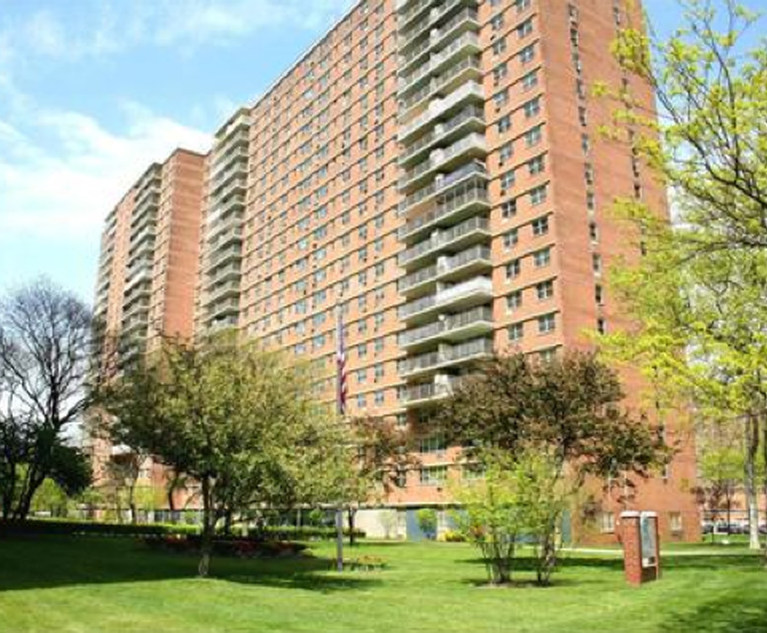Deborah Koplovitz

September 07, 2023 | New York Law Journal
RPAPL §2001 Does Not Serve As Time-Bar to Condominium Board Requesting That Unit Owner Remove Structures From Outdoor SpaceThis article discusses a recent case filed by a condominium unit owner that touches on concerns related to the use of outdoor space associated with a cooperative or condominium apartment, such as who actually owns the space and if costs associated with the use of outdoor space can be charged.
By Deborah Koplovitz and Andrew B. Freedland
5 minute read

May 11, 2023 | New York Law Journal
Addressing Differences Between the Business Corporation Law and the Cooperative Corporations LawA corporation may also have been formed under New York's Cooperative Corporations Law (CCL) —though the Legislature did declare that the policy behind the CCL was "to encourage ... effective organization" of associations of "producers, marketers or consumers of food products" with the aim of "rendering of mutual help and service" to those entities.
By Andrew B. Freedland and Deborah Koplovitz
5 minute read

March 01, 2023 | New York Law Journal
Court Denies Attempt to Apply Third-Party Beneficiary Law in ReverseA recent case involves a situation asked of counsel representing condominiums and cooperatives on a regular basis; who is responsible for the repairs and damage stemming from alterations to the interior of a cooperative apartment, which were previously made by the predecessor shareholder?
By Andrew B. Freedland and Deborah Koplovitz
5 minute read

November 02, 2022 | New York Law Journal
No Certificate of Occupancy? No Problem!A recent case by the Appellate Division, Second Department, has reinforced one important distinction between a residential rental tenant, and a shareholder in a cooperative corporation.
By Deborah Koplovitz and Andrew B. Freedland
6 minute read

August 31, 2022 | New York Law Journal
Issues in Apartment Buildings When There Is No Mending WallIt seems that a recent case has tacitly recognized that noise from other neighbors and their children in apartment buildings is not unexpected, and unless it is so unreasonable that it precludes a tenant from enjoying the intended function of the apartment, a warranty of habitability claim may not make the kind of good fence that some neighbors wish it would.
By Deborah Koplovitz and Andrew B. Freedland
6 minute read

May 13, 2022 | New York Law Journal
Sometimes the Fastest Route Is a Straight LineThe matter of 'Trump Village Section No. 4 v. Gene Vilensky a/k/a Gene Vilenskiy' is yet another illustrative reminder of the difference between cooperatives and condominiums.
By Deborah Koplovitz and Andrew Freedland
6 minute read

March 02, 2022 | New York Law Journal
Litigating Fraud Claims Against a Sponsor of Real Estate Development Projects: Careful Drafting Is Still RequiredGiven the continued dismissal of claims for fraud which fail to meet the clear-cut pleading requirements and the ongoing development of new construction residential properties (albeit at a slightly slower rate than pre-pandemic due to supply-chain and other issues), a historical analysis of the legal standards for certain sponsor defect claims is instructive.
By Deborah Koplovitz and Andrew Freedland
6 minute read

December 28, 2021 | New York Law Journal
An Employee's Side Hustle Could Lead to Legal Tussles'Gundlach' illuminates the risks that may await a board when an employee's small side jobs goes awry, and serves as a cautionary tale.
By Deborah Koplovitz and Andrew B. Freedland
6 minute read

September 01, 2021 | New York Law Journal
Board Repair Obligations, RevisitedIn this Cooperatives and Condominiums column, Deborah Koplovitz and Andrew Freedland discuss a recent federal court decision that may provide a deeper understanding about the extent of the business judgment rule's reach in addressing repair requests.
By Deborah Koplovitz and Andrew Freedland
6 minute read

June 11, 2021 | New York Law Journal
City, State and Feds Ban Tenant-on-Tenant Harassment Claims, but Boards Can Still Promote Civil ConductIn their Cooperatives and Condominiums column, Andrew Freedland and Deborah Koplovitz discuss the recent Second Circuit decision 'Francis v. Kings Park Manor', which addressed the question of whether a New York landlord that does not curtail "tenant-on-tenant" harassment could be subject to a claim for housing discrimination under the Federal Fair Housing Act and the New York State Executive Law pursuant to a "deliberate indifference" theory.
By Andrew Freedland and Deborah Koplovitz
6 minute read
Trending Stories
- 1TikTok Opts Not to Take Section 230 Immunity Fight to U.S. Supreme Court
- 2Feasting, Pledging, and Wagering, Philly Attorneys Prepare for Super Bowl
- 3Special Section: 2025 Real Estate Trends
- 4Snap Paid $63M in Fees to 2 Am Law 200 Firms in '24
- 5Lawyers Across Political Spectrum Launch Public Interest Team to Litigate Against Antisemitism



